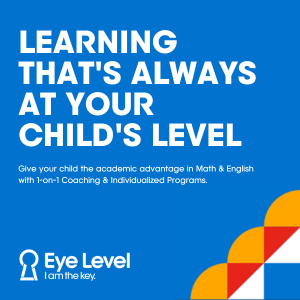
Dr. Linda S.D. Croglia will join the Bett Asia Leadership Summit 2019 as a speaker covering teacher retention and recruitment for a K12 audience. Today, she provides a brief reflection on early childhood education and the importance of enhancing teaching and learning.
Dr Croglia’s background as a teacher includes recognition as teacher-of-the-year and New York State Social Studies Teacher of the Year. She is an experienced, successful principal in both urban and suburban settings. Her tenure as principal includes local, state, and national recognition for excellence in instructional programs and improved student achievement.
She designed, staffed, and implemented an award winning "School for the 21st Century" (New York State designation), including comprehensive staff development to implement curriculum, instruction, and assessments. She is a specialist in Mentoring, Coaching, and Strategic School Improvement Planning. She has conducted professional development locally and internationally, including extensive work in Vietnam, Singapore, and Argentina. She recently authored a guide to mentoring for the Workforce Development Authority and SEED Institute in Singapore.
Effective early childhood programs are developmentally appropriate and meet the diverse needs of the whole child. Learning experiences provide each child with opportunities to achieve his/her potential in all areas of growth. Achieving success is the result of extensive curriculum planning, training, and successful implementation of best practices.
It is important for all parties to understand and embrace the goals of each early childhood program, with teachers and administrators participating in professional development to assure that carefully planned program goals can be carried out effectively. In addition, it is vital to provide parents with opportunities to be integral parts of their child’s educational experience.
In the United States, the field of early childhood education has evolved into a program with a greater emphasis on academics. However, many experts in early childhood, both teachers and administrators, disagree. Child-centered early childhood classroom programs provide constructivist, experiential, and play based learning in order to meet the developmental and academic needs of children.
One of the most effective ways to achieve a child-centered and developmentally appropriate early childhood program is through the use of a center-based model. The basis for planning learning center activities is inherently based on the developmental and academic skills that are part of the required curriculum in each classroom. Using a center-based model does not change what children should learn. The difference lies in how they will learn it.
A center-based program provides great opportunities for constructivist, experiential learning with numerous occasions for children to learn through play. Importantly, a center-based program is a moderate transition from a teacher directed program and includes well-planned activities and opportunities for rich independent learning.
A balance of teacher selected and child-selected activities in learning centers, all related to curriculum goals and objectives, is important, as well as numerous opportunities for free play.
In addition, assessment that is developmentally appropriate and authentic is a critical component of the early childhood program. In a center-based classroom, effective assessment should inform planning and instruction, including the development of appropriate learning center activities aligned with curriculum content and developmental skills. A wide variety of authentic assessment tools are available, should be studied and used based on program expectations.
As teachers move to implement differences in program delivery (child-centered), classroom organization and management (learning centers) and assessment, it is very important to have systems in place to promote teacher collaboration and sharing. With expectations for teachers to try something new, it is truly essential that a very specific plan, built into the center culture and organization, provide the means for teachers to meet and share ideas, successes and challenges. Innovation without teacher teams, which have a focus on collaboration, is much less likely to be fully successful.
As teachers implement center-based learning, authentic assessment, and systems to promote and ensure teacher collaboration, the next step is effective teacher evaluation. Teachers need to know what elements must be present in effective early childhood teaching and be able to demonstrate evidence of these essential elements of effective instruction. Factors that impact teacher performance include evaluations done by administrators, mentor programs, peer coaching, self-assessment, professional development, and collaboration.
Another factor that serves to elevate the performance of teachers, and the effectiveness of instructional planning and implementation, is the development of teachers as leaders. Administrators provide leadership and guidance, but it is essential for teachers too to act as leaders. Shared responsibility for program and teaching excellence yields great improvements in teaching and thus in children’s learning.
Whatever we do in our early childhood classrooms, we must make all of our decisions based upon what is best for children. This was always what I said to my teachers in our early childhood center and it was that very statement that helped all of us embrace the right course of action. It also helped us do what was right, not what was easy. How can we best provide a learning environment where each child can thrive, learn, explore and develop to his or her fullest capabilities? When we get that right, we know we are serving young children well.
















![[elc International School] NO SHORTCUTS: WHY THINKING STILL MATTERS](https://mint-edm.sgp1.digitaloceanspaces.com/production/XTvbqZxxQQxUHjyDcClxCortA5SxNs.png)




















